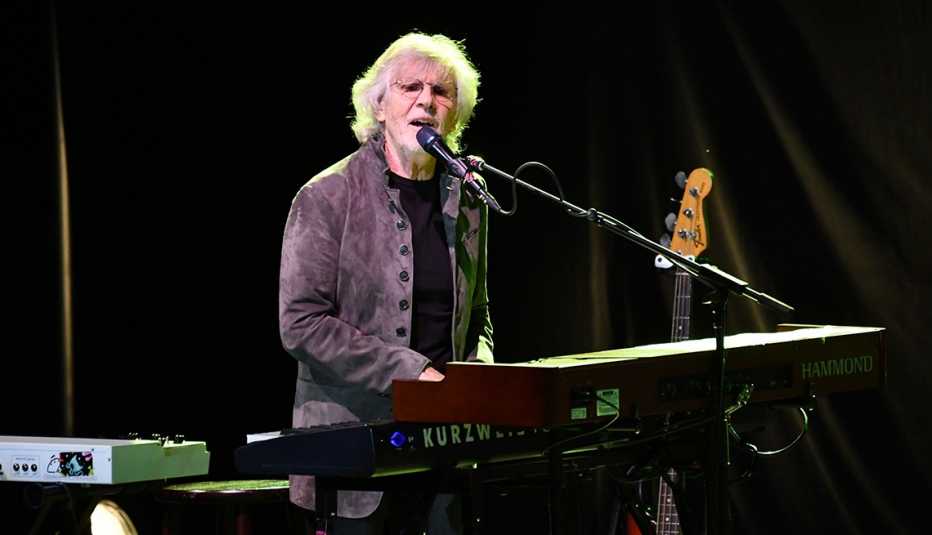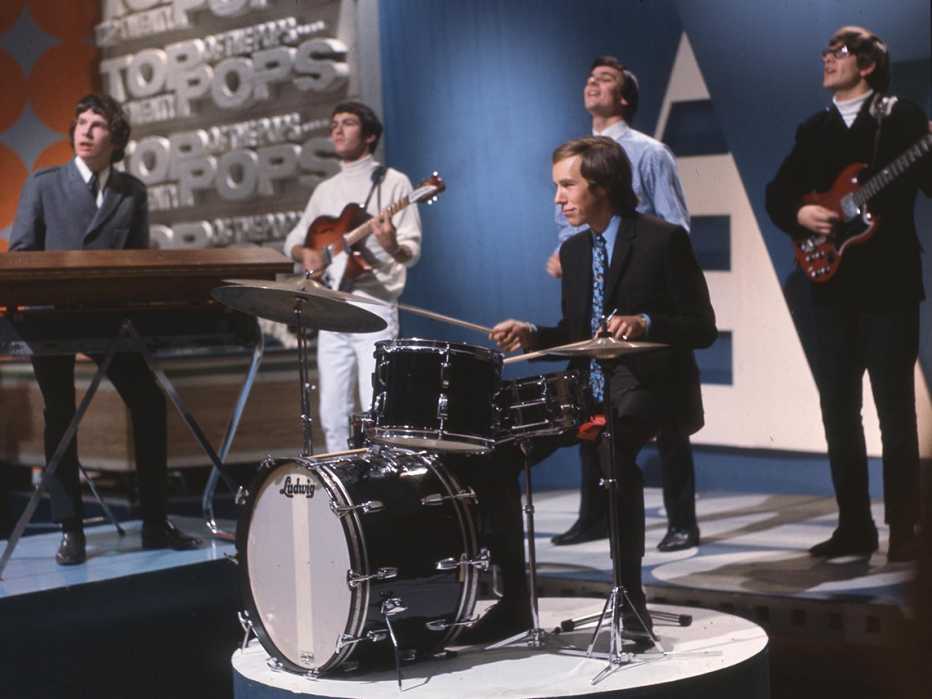AARP Hearing Center


When “Time of the Season” hit No. 3 on the Billboard U.S. singles chart in 1969, the band that recorded it wasn't even a band anymore. Shortly after releasing their 1968 psychedelic touchstone album, Odessey & Oracle, the Zombies had broken up. (Previous hits for this British Invasion group included “She's Not There” and “Tell Her No.") But 30 years later, the Zombies re-formed and started touring again, to receptive audiences. In 2019, they were inducted into the Rock & Roll Hall of Fame, 50 years to the day after “Time of the Season” hit its chart peak.
On Sept. 18, the Zombies will perform in a livestreaming concert from London's famous Abbey Road Studios. The band is also working on a new album. We talked with songwriter and keyboardist Rod Argent from his home in England (check out thezombiesmusic.com) about the Zombies’ enduring appeal.
What did the Hall of Fame induction mean for the Zombies?
It's just so fantastic, because singer Colin Blunstone and I have just turned 76, and we feel great at the moment. We both know we're playing and singing as well as we ever have in our lives. And it's very exciting to be in that position. Most of my friends from the old days have retired.
What set you apart when you formed in 1961?
We were one of the bands who were always singing harmonies, even at that time, before the Beatles exploded onto the scene. We've always had three-part harmonies in our inventory.


Your keyboard solos — in songs from “She's Not There” to “Time of the Season” — had a jazzy feel. How did that come about?
The solos were absolutely all improvised. Inevitably, what is originally improvised starts to become a structure; it cements itself in place when you play it many, many times. I always try to bring something different each night, which gives a little bit of freshness.
Why did the band break up after releasing Odessey & Oracle?
Everyone in the band loved it, and we got some really good reviews, but nobody played it in the U.K. at all. Absolutely nobody. So we said, “We'll put one single out, and if it's not a hit, we'll break up.” And “Care of Cell 44” came out. Nobody played it, it wasn't a hit, and we broke up.
What inspires you to put out new Zombies music today?
We've never wanted to live in the past, and we still don't now. And it's more exciting to go on the journey of creating a new song, developing it, seeing it start to work and having a great reaction from the audience. That was always the most exciting part when we were 18, and it's the most exciting thing for us now to have as well.



































































More on entertainment
How Ringo Starr Turned His Quarantine Into Music Gold
Pop legend emerges with a new EP, book, upcoming tour and serene outlook on being 80Tony Bennett and Lady Gaga Reunite for Radio City Performances
Pair of concerts will celebrate his 95th birthdayAARP Presents 'Smokey Wrote That'
Motown legend and prolific songwriter Smokey Robinson tells the stories behind timeless hits